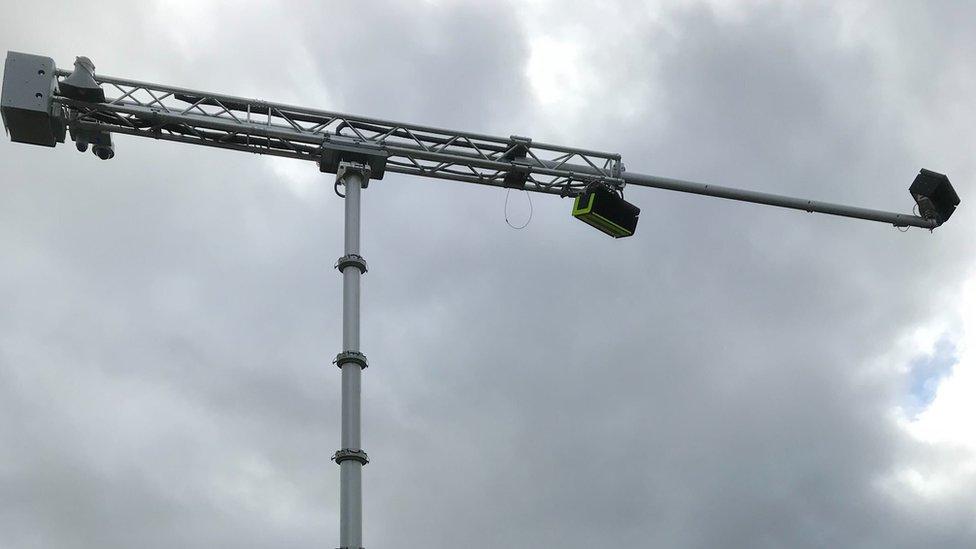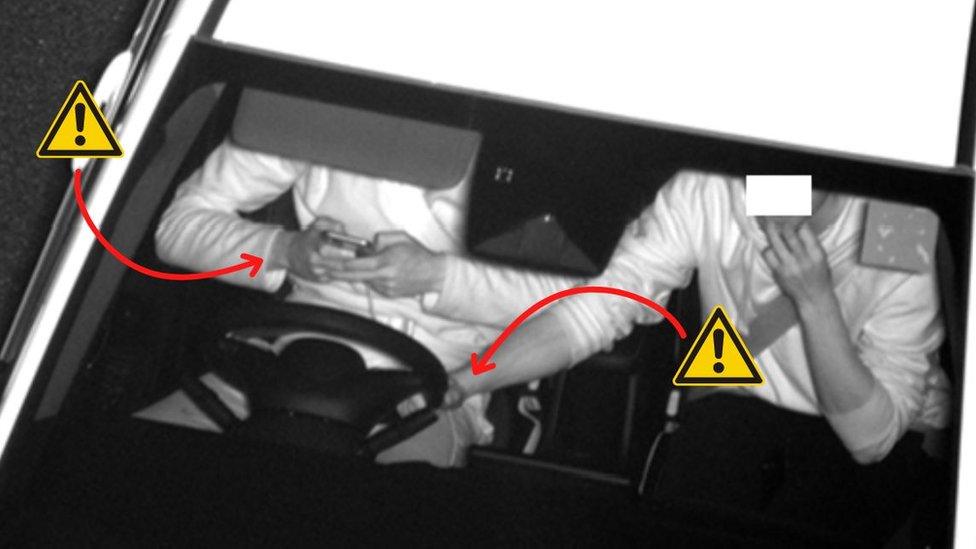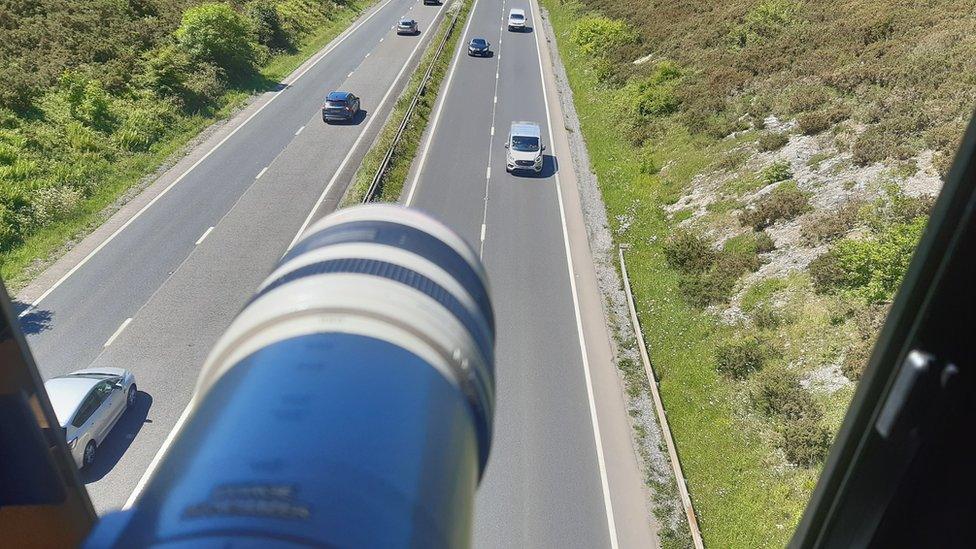AI cameras catch 297 drivers in three days in Cornwall
- Published

The AI camera system can be easily moved to monitor various locations across the region
An artificial intelligence (AI) camera system caught almost 300 drivers breaking the law during the first three days of its use in the UK.
The motorists were found to be using mobile phones or not wearing seatbelts.
The free-standing AI road safety camera is currently in use on the A30 near Launceston, Cornwall.
Although the cameras use AI to detect potential offences, all images are reviewed by a person, said Devon and Cornwall Police.
The system uses a number of cameras with high shutter speeds, an infra-red flash and a lensing and filtering system to record clear images of passing vehicles.
Those images are reviewed by the AI software with those identified as likely to contain evidence of an offence anonymised and sent for review by a person to confirm an offence has occurred.
The force, which is trialling the system, said if an offence has been correctly identified, the driver would either be sent a warning letter or a notice of intended prosecution, depending on the severity of the offence.

Police were "disappointed" by the number of drivers not wearing seatbelts or using mobile phones
In the first 72 hours of use the AI camera system detected:
117 mobile phone offences
180 seat belt offences
In 2022 Vision Zero South West conducted a 15-day trial of a larger, vehicle-based system from road safety tech firm Acusensus.
It detected 590 seatbelt and 45 mobile phone offences across various roads in both Devon and Cornwall.
Last year there were 48 road deaths and 738 serious injuries on roads in the two counties.
Adrian Leisk, head of road safety for Devon and Cornwall Police said: "When we trialled this technology last year, we were disappointed by the number of drivers detected not wearing seatbelts.
"The early results from our latest deployment show that there is also a problem with mobile phone use behind the wheel, which is both dangerous and illegal.
"We are employing this new technology to send a clear message to anyone who continues to use their phone behind the wheel - you will get caught."

Follow BBC News South West on Twitter, external, Facebook, external and Instagram, external. Send your story ideas to spotlight@bbc.co.uk, external
- Published20 November 2022
